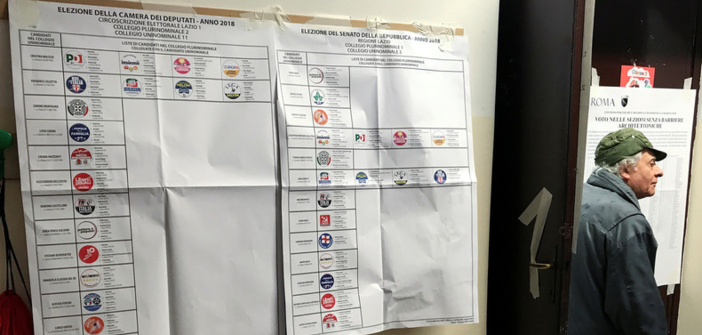A complex electoral law designed to create conditions for an alliance between the Democratic Party (in power since 2013) and the right-wing of Silvio Berlusconi has failed its purpose: the result is a country with anti-establishment forces emerging victorious at the polls, with the M5S sweeping the majority in the south and the center-right coalition in the rest of the country, particularly in the northern regions, but with the League as the most voted party within it.
The PD comes out marginalized and devastated from this consultation, and the leadership of Matteo Renzi becomes a real problem for this party.
However, no majority has emerged, and the electoral law was designed to achieve this, making it very problematic to imagine a solution to the looming governance crisis.
An alliance of the populists from the M5S and the far-right League is the only viable option to obtain a parliamentary majority, given the partial results. However, the leaders of these two formations have so far categorically rejected this possibility.
A historic breakthrough of anti-establishment, Eurosceptic, and far-right forces, majority in votes and seats after Sunday’s legislative elections in Italy, disrupts the balance and plunges the country into political uncertainty.
The coalition formed by Silvio Berlusconi’s Forza Italia, the League, and the small Fratelli d’Italia (Brothers of Italy) party, certainly obtains some 37% of the votes, according to partial results based on 2/3 of polling stations.
But within this coalition, it is Matteo Salvini’s League, an Eurosceptic and anti-immigration formation allied with Marine Le Pen in Europe, that is leading. Throughout a campaign marked by violent incidents, the League hammered an anti-immigration and Brussels-skeptical discourse, which seems to have resonated in a country plagued by Euroscepticism and where some 690,000 migrants have been welcomed since 2013.
The anti-establishment Five Star Movement (M5S) on the other hand scores a historic breakthrough, becoming the first party in Italy with a score nearing 32%, a few months after the victory of Brexit in Britain and Donald Trump in the United States.
This movement, founded by comedian Beppe Grillo in 2009, had already surprised by capturing 25% of the votes in the last legislative elections of 2013, securing a central position in the future parliament if its score is confirmed.
The Democratic Party (PD, center-left) led by Matteo Renzi confirmed at the polls the poor result anticipated by surveys, with a score below 20%, half the score obtained in the 2014 European elections.
The absence of a majority for the right-wing coalition, if confirmed, forces Italian political leaders into calculations and negotiations, which are likely to be long and complex.
It will therefore be up to the Italian President, Sergio Mattarella, to untangle the skein of these results in the weeks that follow, and to give an “exploratory mandate” to the person he considers capable of obtaining a parliamentary majority.
But these official political consultations will not open before the end of the month at the earliest, after the election of the presidents of the two chambers, opening a new period of instability in Italy, which could ultimately lead to new elections.
But, in any case, a new electoral law will need to be voted on to avoid a repeat of this stalemate, and this, with the future parliament’s composition, will be a perilous exercise!


